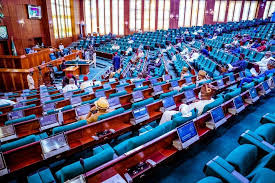Way back in mid July, resolutions were passed by the House of Representatives to the effect that certain measures were taken in order to arrest the perennial cases of farmers-herders clashes, including an interface with stakeholders towards finding a lasting solution. An Ad hoc committee for that purpose was agreed to be constituted. JOSHUAEGBODOwrites on the issues.
Two motions, same issue
The case of farmers having repeated clashes with cattle herders may not be new to the Nigerian state, but of great concern to the citizens was the dimension to which it gradually assumed, dangerously too.
The situation had over the years taken political and ethnic colourations. Communities have been wiped off in reprisal attacks, and ancestral homes deserted for displaced persons camps in the aftermath of several of such violent attacks.
Through the said motions, the House of Representatives urged the Federal Government to end banditry, farmer-herder clashes in Katsina and Gombe states, and to initiate a coordinated Joint Security Operation (JSO) by providing aerial surveillance and other combat mission plans to flush out bandits from the troubled areas. Aminu Babale (APC-Katisna) and Inuwa Garba (PDP-Gombe) had separately drew attention of the House to the matter.
Babale in presenting a motion he titled: “The Need to Address the Incessant Banditry Attacks on Villages in Dustin-Ma/Kurfi federal constituency of Katsina’’, said such attacks resulted in injuries and deaths of scores of innocent residents, as he recalled that on 12 June, the communities of Tashar Yaro, Koza, Kudewa villages, Geza, Sauyawa, Tamawa, and Maileda within Kurfi and Dutsinma Local Government Areas of Katsina state were attacked by bandits and scores were displaced.
He noted that these banditry activities had led to regular imposition of illegal taxes on farmers before they are allowed to access their farmlands, a situation he said even put them at great risk after such taxes have been collected, especially in the possibility of losing their livestock to rustlers and having their shops burgled by the daredevil kidnappers in search of foodstuff.
According to him, the incessant attacks by the bandits had led to low farming productivity, thus aggravating the food insecurity in the affected communities, as he said most youth in the affected areas could end up with little or no income, thus worsening youth restiveness.
On his part, Garba called for Intervention in the recurring annual clashes between farmers and herders in the Yamaltu–Deba Federal Constituency of Gombe State, pointing out that previous efforts of the state government were yet to yield significant results as the annual clashes had continued to reoccur.
He said the development has threatened the peace and security in the area and neighbouring states of Adamawa, Taraba and Benue, and has negatively impacted food sufficiency because farming and other economic activities have been negatively affected over the years, expressing fears that with the upcoming harvest season, a reoccurrence would continue if nothing tangible were done regarding urgent intervention, when it is expected that the social, economic development, security and the general wellbeing of the populace were paramount.
Speaker Abbas deeply concerned
On Monday when the Ad hoc committee began its sitting, Speaker of the House of Representatives, Tajudeen Abbas expressed deep concern on the level of losses occasioned by the clashes between farmers and cattle herders over the years.
The Speaker, who was represented by his deputy, Benjamin Kalu to declare the hearing open, said the task before this committee is very critical and of utmost national importance as it directly affects both national and food security. It is a matter that has lingered for decades now. Given its implications for the collective good of the nation, the House resolved to take a critical look into the causes, nature, dimensions, actors, impact, and possible solution to this nagging national challenge. Hence the constitution of this Ad-hoc Committee.
The costs
The Speaker pointed out that the lingering conflicts have been at a very huge cost to the nation. “These conflicts have escalated in recent years and it is quite consequential to our national security. What is even more concerning is the appropriation of these conflicts by terror groups, bandits and international criminal organizations. This
has had severe consequences including the restriction of farmers from access to their farmlands, leading to food price inflation, a high cost of living, unemployment, and loss of foreign earnings that would have accrued through the agricultural sector. It is therefore a germane concern that an otherwise multi billion dollar livestock industry is mired in crisis and security challenges. It ought not to be so. It should rather be an avenue for gainful employment, industrial and manufacturing renaissance when the entire value chain is explored.
“Dear colleagues, ladies and gentlemen, what is clear from the foregoing is that we are not only dealing with a national security problem but also a food security challenge. Indeed, the two
reinforce themselves. No doubt, these conflicts are in part triggered by the global environmental challenge of climate change.
“It arises from the drought and extreme weather conditions brought about by climate change especially in the Northern part of the country. As a result, farmers are forced to move their livestock to other parts of the country that are less affected by grazing, leading to the destruction of farmlands and crops. In retaliation, farmers
often resort to slaughtering the herders’ livestock. These actions exacerbate the food crises as both crops and livestock
are destroyed in the process.
“In the past, these clashes were viewed as mere communal clashes arising from disputes over farming land, grazing spaces, and water, which were largely confined to northern Nigeria. However, the clashes have long escalated and spread to other parts of the country, taking on political and ethno-religious dimensions. It ought not to be so. In addition, there are claims of violent herders infiltrating our borders from neighboring countries and perpetuating killings, cattle rustling, and destruction of property.
“The clashes have resulted in avoidable losses of lives and property. It is estimated that over 60,000 people have been killed since 2001. It ought not to be so. The number of deaths, injuries, and kidnapped persons constitutes an alarming situation and poses a serious national security challenge for Nigeria’s quest to attain food security and alternative foreign earnings from the agricultural sector. This menace requires urgent action to be taken”, he said.
The National Security Adviser, Mallam Nuhu Ribadu, who was represented at the event also lamented the huge economic losses associated with farmers-herders clashes across the country.
The charge
While commending the panel, Abbas stated some expectations therefrom. “I thank this Committee for its prompt response to the request of the House to investigate the herder-farmer clashes. Your core mandate as a committee, therefore, is to uncover the facts, identify the remote and immediate causes of herder-farmer clashes in Yamaltu – Deba and other regions, interrogate the degree of loss of lives and property, and recommend policy and legislative solutions including but not limited to what we are not able to have ranches as in other jurisdictions.
“In addition, as you carry out this all-important national assignment, I enjoin you to be guided by the values of integrity, fairness, and social justice. You must also engage relevant stakeholders in open dialogues, including representatives from the security sector, and socio-cultural groups as well as experts in mediation, dialogue, conflict management, and peace
building.
“I call on all stakeholders to extend their full cooperation to the committee. Let us set aside our differences, prejudices, and
biases as we work together for our collective good. By doing so,
we will not only resolve these crises but also promote social cohesion, economic development, and unity among our diverse communities.
“By the powers conferred on me as the Deputy Speaker of the House of Representatives, on behalf of the Speaker, I hereby inaugurate this Ad-hoc Committee and declare open, the interactive sessions with relevant stakeholders. I urge you to carry out this national assignment with every sense of responsibility, commitment, and dedication it deserves. Do not leave any stone unturned in your investigation and dialogue. I am confident that your report will provide valuable insights and actionable recommendations to guide the House of Representatives in enacting necessary legislation.
Cattle breeders suggest way out
The Miyetti-Allah Association, umbrella body of cattle breeders in Nigeria, recently suggested the setting up of a National Truth and Reconciliation Commission to begin the process of total reconciliation and national healing process in rural communities which experienced such conflicts. The group made the appeal in a communique issued at the end of its Annual General Meeting and Delegates Conference in Abuja.
The communique was jointly signed by its National President, Abdullahi Bodejo; National Secretary, Saleh Alhassan, and National Deputy President, Mansur Abdulkarim, in which the group also called on security agencies to commence the process of detailed documentation of violence against pastoralists, including the collection of exhibits and relevant information to isolate the perpetrators of violence.”Delegates condemn in totality all forms of violence and support the peace-loving people to embrace the spirit of brotherhood and peaceful and harmonious coexistence in our communities”, it said.
During the session with the House committee on Monday, the group in a memorandum stressed that “Understanding and addressing these challenges in access to grazing land and water sources is crucial in mitigating conflicts between herders and farmers” in the affected areas in question.
Will the fresh intervention pay off?
Chairman of the Committee, Bappa Aliyu Misau said, the issues faced by farmers and herders have reached a critical juncture, demanding immediate attention and collaborative efforts to find sustainable solution.
“To address the root cause of these problems, we need a multi-faced approach that integrates the effort of Governments, Private Sector, Civil Society Organisations. We must also explore investments in agricultural infrastructure such as adequate investment in irrigation systems, storage facilities, rural road network etc. conflict resolution and land management, continued investment in agricultural research and development, enhancing skills and knowledge of farmers and herders”, he stated.
The question on the lips of many Nigerians has however, remained whether the latest move will yield the most desired peace between farmers and cattle herders.




